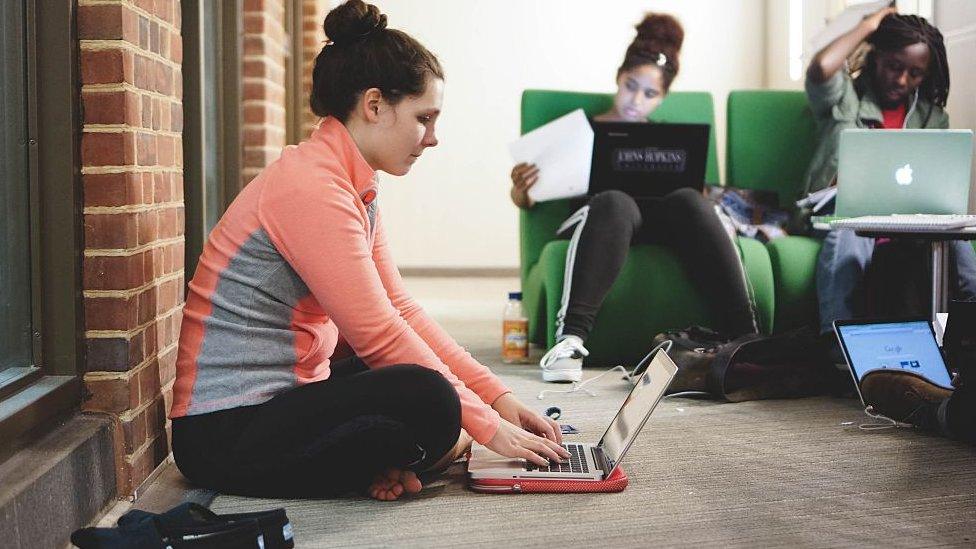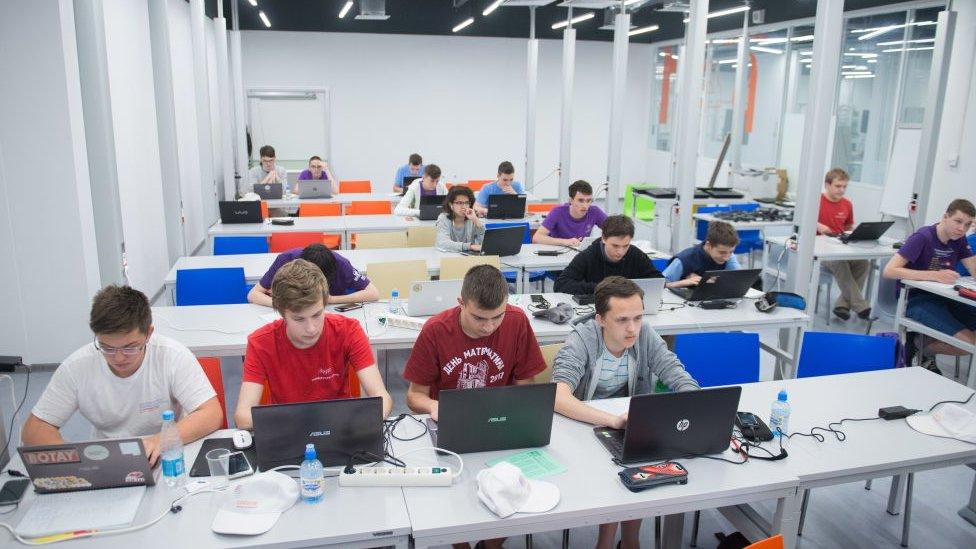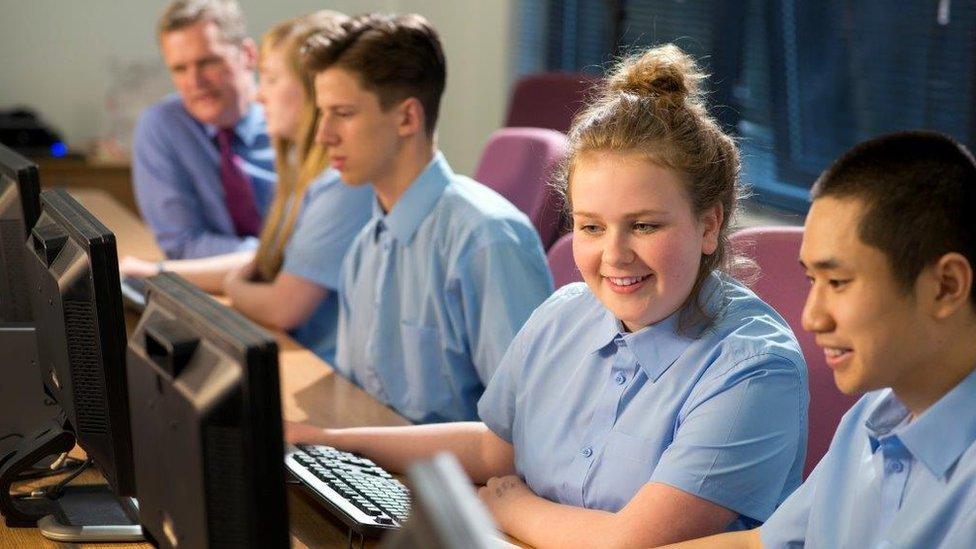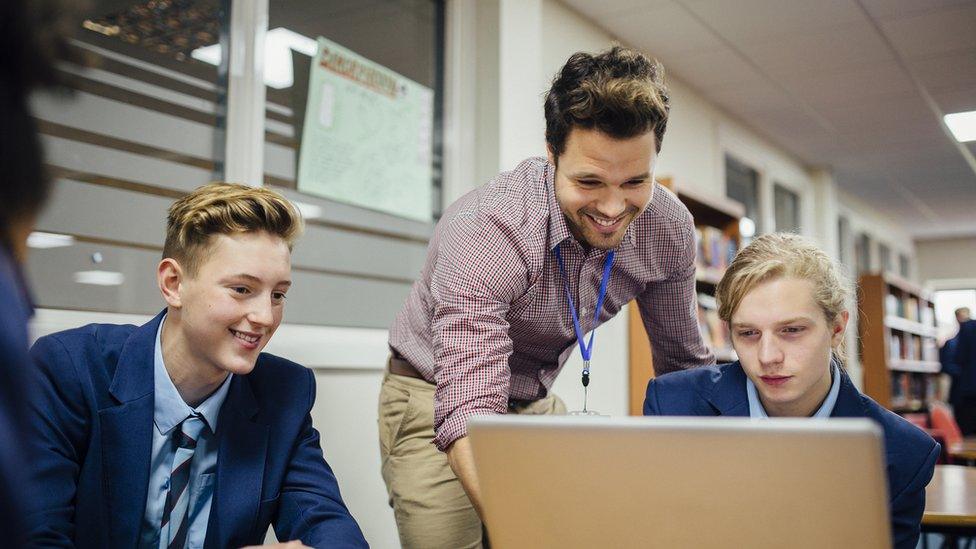Digital skills gap opens up in English schools
- Published

There is new evidence that the revolution in computing education in English schools is faltering - and that fewer children are getting the digital skills that employers and the government say are vital.
It comes in the annual computing education report from the University of Roehampton which looks at how many pupils achieved GCSE and A-level computing qualifications in 2017., external
ICT (Information and Communication Technology) - which was widely derided as being no more than a course in Microsoft Office skills - is being phased out of the curriculum and disappears after this summer as an exam subject.
But its replacement at GCSE and A-level is the far more challenging computer science.
The report says this subject is proving very hard - both for the students and for the schools which need to find the staff to teach it.
In 2017, just over half of all schools in England offered the subject at GCSE level - smaller schools and those in the independent sector were less likely to give pupils the chance to study computer science.
But overall, only 12% of all students choose to take the subject.
It is also proving less attractive to girls than ICT - they make up only 20% of GCSE entrants.

Entries by pupils from poorer backgrounds are also lower.
The typical computer science entrant, says the report, is "academically strong, mathematically able, likely to be taking triple science, from a relatively affluent family, and overwhelmingly likely to be male (even if the smaller number of girls taking the subject do better in the exam)".
And while entries for the new subject have been gradually rising they are not keeping up with the fall in those for ICT.
After that exam disappears this summer, it looks as though there will be a big fall in the overall number of 16-year-olds achieving some form of computing qualification.
"This will disproportionately impact girls, poorer students and some ethnic minority groups," warns the report.
More from Rory on this topic:
Since 2014, 30,000 fewer girls have got a computing qualification by the age of 16.
There is also concern that budgetary pressures will affect the ability of sixth form colleges to continue offering the A-level in computer science.
Most of them have so few students taking the subject that they are below the minimum viable class size set by the Department for Education.
'Exclusive' computing
The authors of the report said they welcomed the introduction of computer science into the curriculum but they now believe ICT should be retained as an alternative.
"The government's refusal to renew GCSE and A-level IT, against the will of the teaching community, is making computing more exclusive," says Peter Kemp from the University of Roehampton.
"The overemphasis on computer science seems likely to lead to fewer students, particularly girls, studying any digital qualification at school. I think it's time to rebalance what's on offer."
The Chartered Institute for IT also expressed concern, saying it estimates that the UK needs half a million more children to gain a computing qualification each year.
"We still have a lack of young people with the work-ready digital and computing skills that our economy needs."
But the Department for Education says the computer science GCSE is providing pupils with a "gold standard" qualification equipping them with the skills they will need for the hi-tech jobs of the future.
A spokesperson said: "Entries for computer science continue to rise more quickly than any other subject, increasing year-on-year since its introduction."
But the latest figures for exam watchdog Ofqual for 2018 - not included in the Roehampton report - show the rise in entries for computer science slowing to only 4%.
With ICT entries down 40%, that means a fall in the total number entering for a GCSE of more than 14,500.
If the aim of overhauling the computing curriculum in England was to give more children digital skills, it appears to be failing.
- Published8 January 2018

- Published10 November 2017

- Published18 June 2017